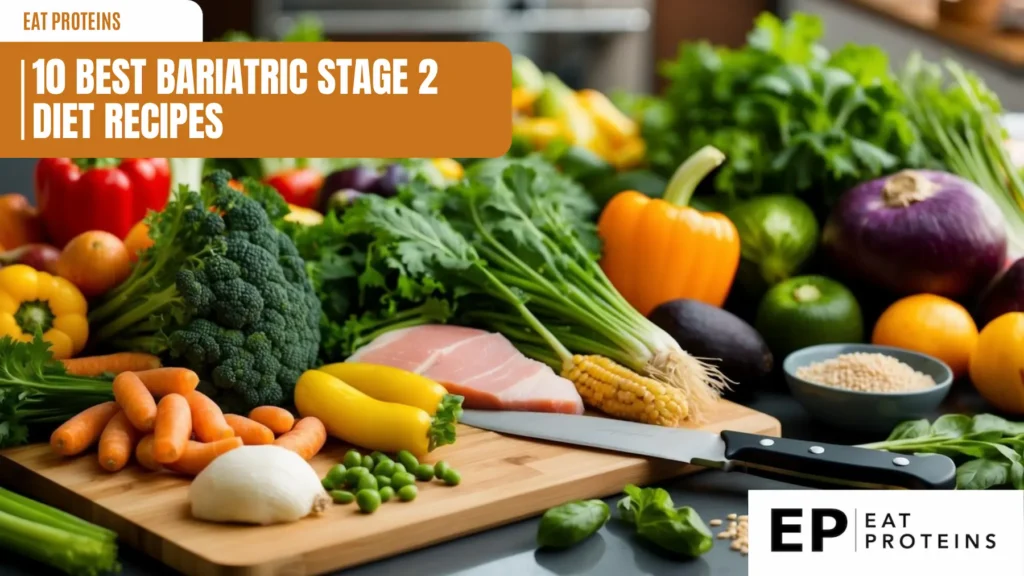
After bariatric surgery, eating the right foods is key. Stage 2 of the diet is an important step in recovery. During this phase, I focus on soft foods that are easy to digest.
Finding tasty recipes for stage 2 can be tricky. That’s why I’ve put together a list of the 10 best bariatric stage 2 diet recipes to help you stay on track with your nutrition goals. These recipes are designed to be nutritious and delicious, while still being gentle on your healing stomach.
1. Greek Yogurt with Berries

Greek yogurt with berries is a tasty and nutritious option for bariatric stage 2 diet. I recommend this simple dish as it’s easy to make and digest.
To prepare, I start with 1/2 cup of plain, non-fat Greek yogurt. Greek yogurt is high in protein and low in sugar, making it ideal for bariatric patients.
Next, I add 1/4 cup of fresh berries. Berries are low in calories but packed with vitamins and fiber. I prefer a mix of strawberries, blueberries, and raspberries for variety.
I gently fold the berries into the yogurt. This step takes just 30 seconds. The result is a creamy, fruity treat that’s ready in under a minute.
For extra flavor, I sometimes add a sprinkle of cinnamon or a drop of vanilla extract. These additions are optional but can enhance the taste without adding calories.
This recipe provides about 15-20 grams of protein and less than 150 calories per serving. It’s a quick, satisfying snack or light meal that fits well into a bariatric stage 2 diet plan.
2. Scrambled Eggs with Spinach

Scrambled eggs with spinach is a nutritious and easy-to-prepare meal for bariatric patients in stage 2 of their diet. This dish combines protein-rich eggs with vitamin-packed spinach, making it an ideal choice for post-surgery nutrition.
I find this recipe simple to make, even for those new to cooking. It takes about 10 minutes from start to finish, perfect for busy mornings or quick lunches.
To prepare, I start by whisking 2 eggs in a bowl. I then add a handful of chopped fresh spinach and a splash of low-fat milk. This mixture goes into a non-stick pan over medium heat.
As the eggs cook, I gently stir them with a spatula for about 5 minutes until they’re fluffy. The spinach wilts nicely into the eggs, adding color and nutrients.
This meal is soft enough for stage 2 of the bariatric diet, while providing essential protein and vitamins. It’s a versatile dish that can be enjoyed at any time of day.
3. Cottage Cheese with Pineapple
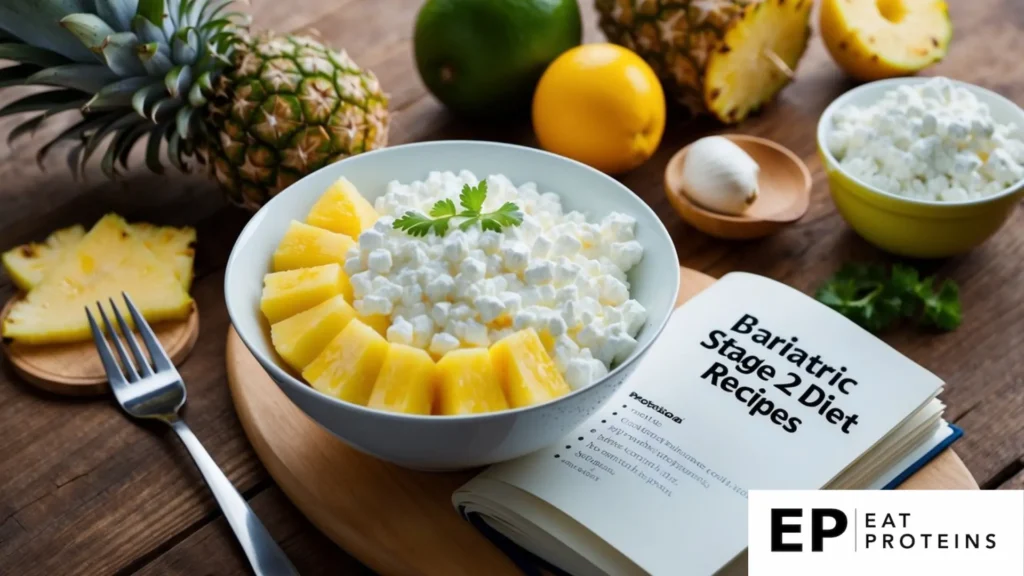
Cottage cheese with pineapple is a simple and tasty option for bariatric stage 2 diet. This dish combines protein-rich cottage cheese with sweet, juicy pineapple chunks.
I find this recipe quick and easy to make. It takes about 5 minutes to prepare and requires no cooking.
To make this dish, I use 1/2 cup of low-fat cottage cheese and 1/4 cup of canned pineapple chunks in juice. I drain the pineapple well to remove excess liquid.
I gently mix the cottage cheese and pineapple in a small bowl. The soft texture of the cottage cheese makes it easy to eat after bariatric surgery.
This recipe offers a good balance of protein and carbohydrates. The cottage cheese provides about 14 grams of protein per serving, which is important for healing and maintaining muscle mass after surgery.
I can eat this dish cold or at room temperature. It’s a refreshing option for a light meal or snack during the stage 2 diet period.
4. Mashed Avocado on Whole Grain Toast
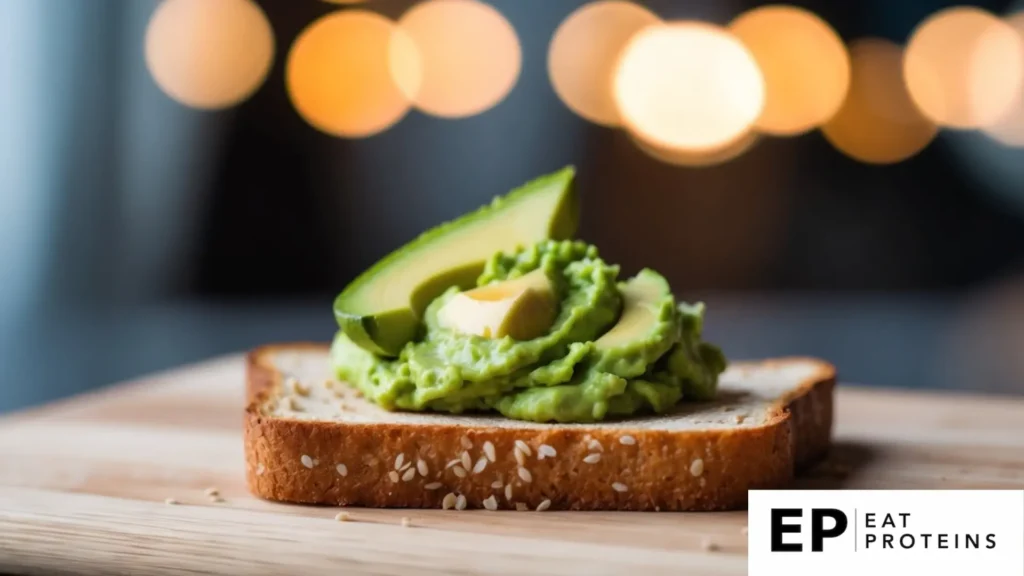
Mashed avocado on whole grain toast is a nutritious and easy-to-prepare option for bariatric stage 2 diet. I find it’s a great way to get healthy fats and fiber.
To make this dish, I start with a slice of whole grain toast. I choose thin slices to keep portions small.
Next, I mash 1/4 of a ripe avocado with a fork. I spread this evenly on the toast. The creamy texture makes it easy to eat and digest.
I can add a sprinkle of salt or a squeeze of lemon juice for extra flavor. These small additions can make the dish more enjoyable without adding much volume.
This recipe takes about 5 minutes to prepare. It’s important to eat slowly and chew thoroughly. I recommend taking small bites and stopping when feeling full.
Mashed avocado on whole grain toast provides a balance of nutrients. It’s a good source of healthy fats and complex carbohydrates. This combination can help keep me satisfied between meals.
5. Baked Salmon with Asparagus
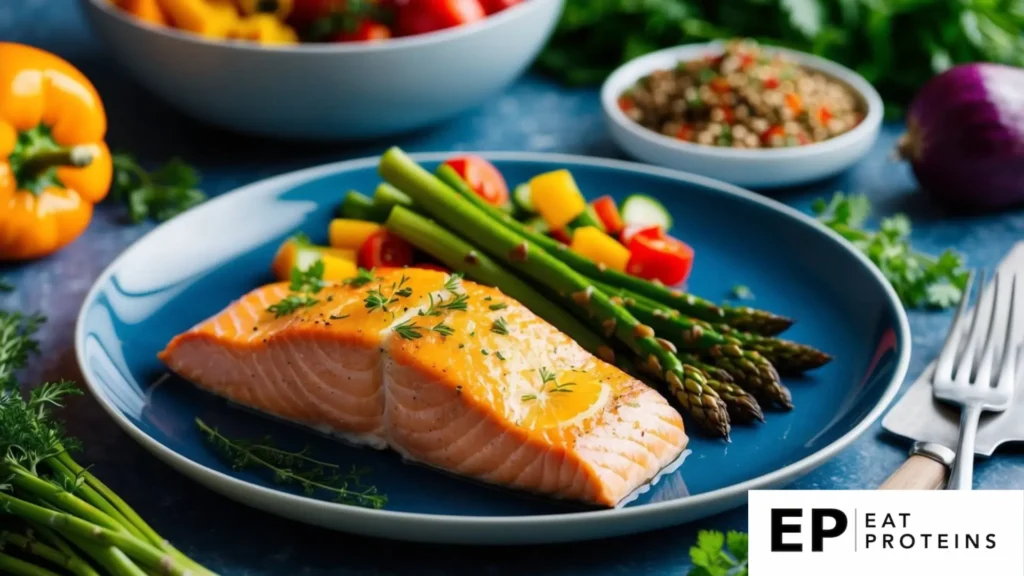
I find baked salmon with asparagus to be an excellent choice for bariatric stage 2 diet recipes. It’s packed with protein and nutrients, making it ideal for post-surgery nutrition.
This dish is quite easy to prepare. I start by preheating the oven to 400°F (200°C). Then, I place a 4-ounce salmon fillet on a baking sheet lined with parchment paper.
Next, I arrange 4-5 asparagus spears around the salmon. I season both with a pinch of salt, pepper, and a squeeze of lemon juice.
I bake the salmon and asparagus for about 12-15 minutes. The salmon should flake easily with a fork when done.
This recipe is perfect for the second stage of a bariatric diet, as it’s soft and easy to digest. The salmon provides healthy fats and protein, while asparagus offers fiber and vitamins.
I recommend eating slowly and chewing thoroughly. This meal is not only nutritious but also satisfying, helping to meet post-surgery dietary needs.
6. Chicken Salad with Greek Yogurt Dressing

I love this recipe for bariatric stage 2 diet. It’s a tasty and protein-rich option that’s easy on the stomach. The dish uses Greek yogurt instead of mayo, making it healthier and higher in protein.
To make it, I start with 1 cup of cooked, shredded chicken. I mix in 1/4 cup of non-fat Greek yogurt, which adds creaminess and protein. I also add 1 tablespoon of lemon juice for flavor.
For crunch, I include 2 tablespoons of finely chopped celery. I season with 1/4 teaspoon each of salt and pepper. Sometimes I add a pinch of dried dill for extra flavor.
I mix all ingredients in a bowl until well combined. It takes about 10 minutes to prepare. The salad can be eaten right away or chilled for later.
This recipe is perfect for bariatric patients as it’s high in protein and low in fat. It’s gentle on the stomach and provides necessary nutrients. I find it satisfying and easy to digest.
7. Quinoa and Black Bean Salad
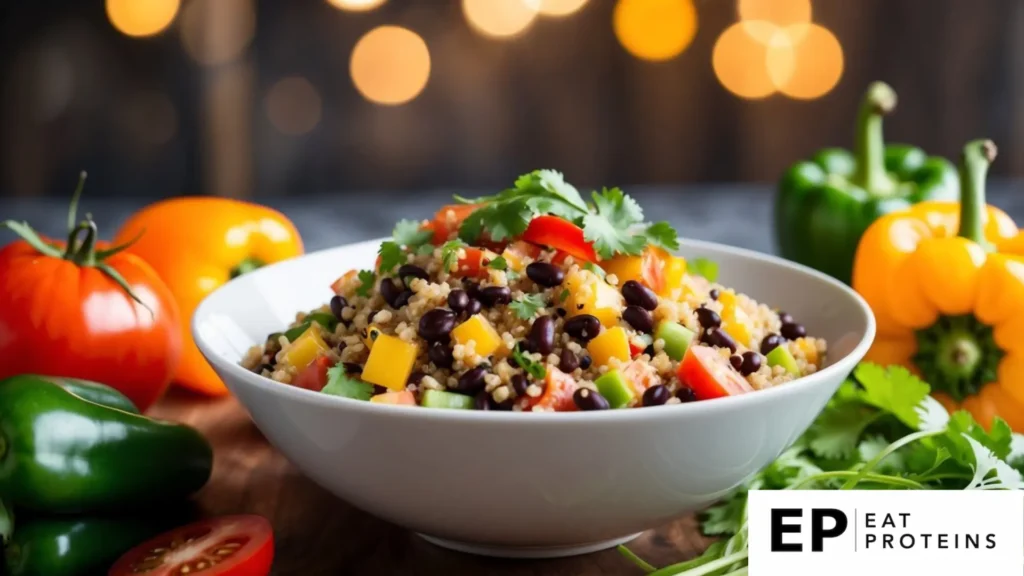
Quinoa and black bean salad is a tasty and healthy option for bariatric stage 2 diet. This protein-rich dish combines two excellent sources of plant-based protein.
I find this salad easy to make. It takes about 20 minutes to prepare and doesn’t require any special cooking skills.
To start, I cook 1/2 cup of quinoa in 1 cup of water for about 15 minutes. While it cools, I drain and rinse 1/2 cup of canned black beans.
Next, I chop 1/4 cup each of tomatoes and cucumbers. I mix these with the quinoa and beans in a bowl.
For dressing, I whisk together 1 tablespoon of olive oil, 1 teaspoon of lemon juice, and a pinch of salt.
I gently toss the salad with the dressing. This recipe makes two servings, perfect for meal prep.
This salad is not only nutritious but also versatile. I can eat it cold or at room temperature, making it great for on-the-go meals.
8. Vegetable Soup with Tofu

Vegetable soup with tofu is a great option for bariatric stage 2 diet. It’s easy to make and packed with nutrients.
I recommend using soft tofu, which blends well into the soup. Start by pureeing 1 cup of cooked vegetables with 1 cup of low-sodium broth.
Next, I add 1/4 cup of soft tofu and blend until smooth. This creates a creamy texture without adding fat.
For flavor, I include 1/4 teaspoon each of garlic powder and onion powder. These add taste without chunks.
I cook the soup on medium heat for 5-7 minutes, stirring often. This helps the flavors combine.
The soup should be thin enough to drink easily. If it’s too thick, I add more broth.
I make sure to let the soup cool slightly before eating. This prevents discomfort.
This recipe makes about 2 servings. It’s best to eat small amounts at a time, about 1/2 cup per sitting.
I find this soup provides good protein from the tofu. It’s also a good way to get vegetables in a smooth form.
9. Oven-Roasted Chicken Breast
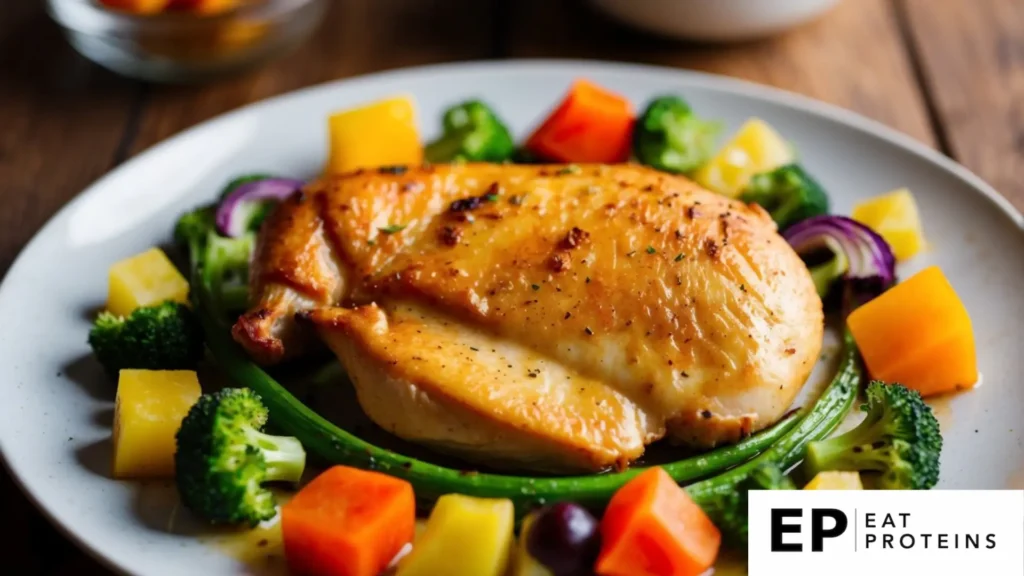
Oven-roasted chicken breast is a great option for bariatric stage 2 diet. It’s high in protein and low in fat, making it ideal for post-surgery nutrition.
I find this dish easy to prepare. I start by preheating the oven to 400°F (200°C). Then I season a 4-6 oz boneless, skinless chicken breast with salt and pepper.
Next, I place the chicken in a baking dish and roast it for about 20-25 minutes. The exact time depends on the thickness of the breast. I always make sure the internal temperature reaches 165°F (74°C).
Chicken breast is a lean protein source that’s easy to digest. It provides essential nutrients without adding excessive calories.
I like to slice the cooked chicken thinly to make it easier to eat. This cooking method keeps the meat moist and flavorful without added fats or oils.
10. Tuna Salad with Olive Oil and Lemon

Tuna salad is a simple and nutritious dish perfect for bariatric stage 2 diet. I find it easy to make and packed with protein.
To prepare, I start with 4 ounces of canned tuna, drained. I add 1 tablespoon of extra virgin olive oil and the juice of half a lemon.
Next, I mix in finely chopped celery and red onion for crunch. I use about 2 tablespoons of each.
For seasoning, I add a pinch of salt and black pepper. Sometimes I include fresh herbs like dill or parsley for extra flavor.
I gently combine all ingredients in a bowl. The olive oil and lemon juice create a light, tangy dressing.
This salad can be eaten alone or served on a small piece of whole grain toast. It’s a quick meal that takes less than 10 minutes to prepare.
The high-protein content makes it filling, while the olive oil provides healthy fats. It’s a balanced option for those recovering from weight-loss surgery.
What Is the Bariatric Stage 2 Diet?
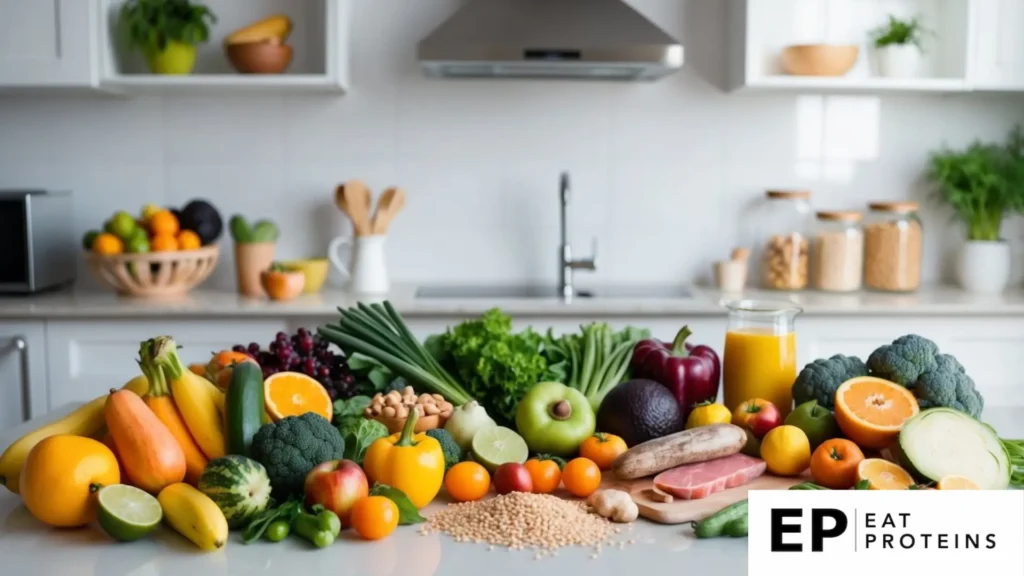
The bariatric stage 2 diet is a crucial step in recovery after weight loss surgery. It focuses on introducing soft foods and helping patients transition to a more balanced eating plan. Let’s explore the key aspects of this important dietary phase.
What Are the Purpose and Benefits of the Bariatric Stage 2 Diet?
The main goal of the stage 2 diet is to ease the transition from liquids to solid foods. This phase typically starts 2 to 4 weeks after surgery and lasts for about 1-2 weeks.
I recommend focusing on protein-rich soft foods during this time. Good choices include:
- Scrambled eggs
- Cottage cheese
- Greek yogurt
- Pureed meats
These foods help support healing and maintain muscle mass. The stage 2 diet also allows patients to practice new eating habits. I advise taking small bites, chewing thoroughly, and eating slowly.
What Is the Recommended Macronutrient Composition for the Bariatric Stage 2 Diet?
In the stage 2 diet, I suggest aiming for a balanced mix of nutrients. Protein should be the main focus, making up about 20-30% of total calories. This helps preserve muscle and promotes healing.
Carbohydrates should account for 40-50% of calories. I recommend choosing easily digestible options like:
- Mashed potatoes
- Soft cooked vegetables
- Unsweetened applesauce
Fats should make up the remaining 30-40% of calories. Good sources include:
- Avocado
- Nut butters (in small amounts)
- Olive oil
It’s important to eat small, frequent meals throughout the day. This helps prevent discomfort and ensures adequate nutrient intake.
How to Prepare for the Bariatric Stage 2 Diet?
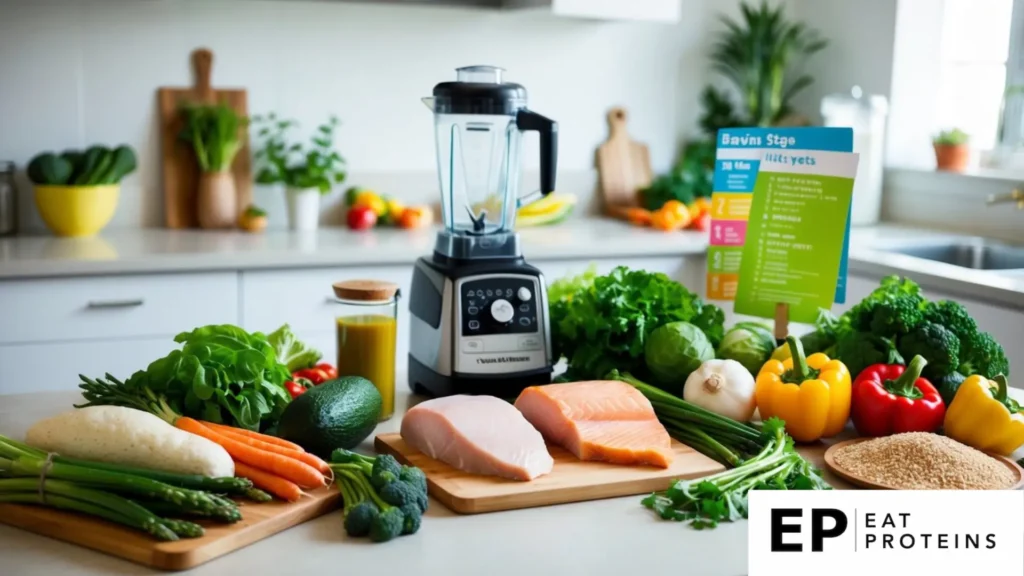
Getting ready for the bariatric stage 2 diet takes some planning. I’ll cover the key tools and tips to set you up for success as you transition to this new eating phase.
What Are Essential Kitchen Tools for the Bariatric Stage 2 Diet?
To prepare for the bariatric stage 2 diet, I recommend having these tools on hand:
- Blender or food processor for pureeing foods
- Measuring cups and spoons for portion control
- Small plates and bowls to help with smaller portions
- Food scale to weigh proteins and other foods
- Storage containers for meal prepping
A food processor is great for creating stage 2 pureed foods. I find it helpful to have multiple sizes of storage containers to portion out meals in advance.
What Are Some Meal Prep Tips for the Bariatric Stage 2 Diet?
Meal prepping is key for sticking to the stage 2 diet plan. Here are my top tips:
- Set aside time each week to plan and prep meals
- Cook proteins in bulk and freeze in single servings
- Pre-portion pureed vegetables and fruits
- Keep a food journal to track intake
I suggest planning frequent small meals throughout the day. Focus on high-protein options like eggs, lean meats, and fish. Avoid foods with more than 10-15 grams of sugar per serving. Having meals ready to go makes it easier to stick to your new eating plan.
What Are the Nutritional Considerations for the Bariatric Stage 2 Diet?
Proper nutrition is key after bariatric surgery. I’ll cover how to track your nutrient intake and common deficiencies to watch out for during the stage 2 diet.
How Do You Track Nutrient Intake on the Bariatric Stage 2 Diet?
I recommend using a food diary or app to log everything you eat and drink. This helps ensure you’re getting enough protein, vitamins, and minerals. Aim for 60-80 grams of protein daily.
Track your calories too. Most patients need 800-1000 calories per day at this stage. Eat slowly and stop when full.
Drink water between meals, not with them. Get 64 ounces of fluids daily. Avoid caffeine and carbonated drinks.
Take your prescribed vitamins and supplements. These fill nutritional gaps as you adjust to eating less food.
What Are Common Nutrient Deficiencies in the Bariatric Stage 2 Diet?
After surgery, you’re at risk for certain deficiencies. I’ll highlight the most common ones to monitor:
• Vitamin B12: Take supplements as directed. B12 shots may be needed.
• Iron: Eat iron-rich foods like lean meats. Women need extra iron.
• Calcium: Consume dairy if tolerated. Calcium citrate supplements absorb best.
• Vitamin D: Take with calcium for better absorption. Sun exposure helps too.
• Folate: Found in leafy greens and fortified foods.
Regular blood tests check your levels. Tell your doctor about any new symptoms. Addressing deficiencies early prevents health issues later.
